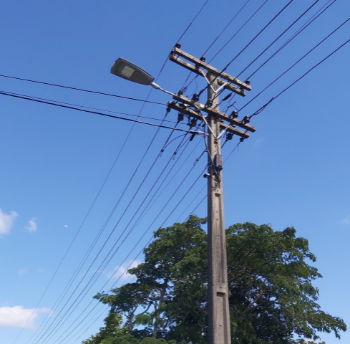
MANGAWHAI'S NO.1 NEWSPAPER
|
|
|
The Climate Chap: Electricity 10128 Feb, 2022
By 2050 we will be totally dependent on renewable energy and electricity. The climate crisis dictates this. The supply of electricity will be absolutely critical to the well-being of our nation. No power, no functioning society. Even a short power cut as experienced last August severely impacted thousands of homes and businesses. So, let’s take a quick look at our electricity industry and the challenges and opportunities that it and we face. The great news is that around 80 percent of our electricity generation is already based on renewables. We have around 200 generating plants that feed into our national grid. Inevitably many of these plants are far away from where the electricity is needed. We are also fortunate to have a range of generating options available to us as we phase out fossil fuels. These include hydro, steam, wind, solar, batteries, tidal and nuclear. Each has its positives and negatives, and vary in costs and maintenance. The challenge is to ensure that we have a consistent supply of electricity generated whilst a number of these solutions are “weather dependent”. Therefore nuclear, hydro and tidal offer a far more predictable supply than solar or wind. More great news is that in 2022 we have a national grid capable of moving electricity around the country, and ample generating plants feeding the grid and supporting the demands of home, business and manufacturing. But the future may be very different. We are simply using more and more electricity. All those smartphones, TV’s, computers, heat pumps and electric toothbrushes need power. As mentioned, more and more electricity needs to be generated to offset the use of fossil fuels and to replace generation plants that are reaching their use-by dates. Newly proposed ‘data centres’ to support cloud computing and cryptocurrencies each need more power than your typical town! Transport is becoming electricity based, replacing petrol. Whilst solar systems can aid the production of electricity for both the home and to power EV vehicles, the demand on the national grid will be heightened. Finally, the real biggie. We expect our population to increase to 6 million by 2050 – a 20 percent increase, and therefore safe to assume that we will need our national grid and generation capacities to similarly increase to meet this inevitable growth. As with any national infrastructure, the overall capability of the electricity system must support a contingency so as to cater for technical problems and heightened demand. Hydro stations when under maintenance must be compensated with “back-up” generation capacity. More good news is that our electricity industry is well aware of the potential future needs, and is actively working to determine what investments are required to cater for this increase in demand through 2050. We’ve a complex industry for such a small country. The industry consists of transmission, generation, distribution and retail functions. Government-owned Transpower is responsible for the national grid, and for the management of generating plants feeding into the grid at any one moment. The grid will need massive development to support the future demand. Next, we have five major companies that dominate generation. Genesis, Mercury and Meridian enjoy a significant government stake, whereas Contact and Trustpower are independently owned. Each of these businesses are fully behind “clean energy” with solar and wind farms dominating recent investments. Next, we have 27 lines companies that take electricity from the national grid and are responsible for local delivery to one’s home or business. Northpower and Vector are represented in our region. Finally, we have retailers who charge you each month for the electricity you consume. The “Big 5” already mentioned have around 85 percent of the overall marketplace, but there are dozens of smaller retailers always keen for your business. Problems ahead? For a start it takes years and years for any new generating project to get approved and constructed. Upgrading the national grid will likely cost a fortune. There is worldwide demand and competition for new solar, battery, wind and nuclear technologies. Everyone’s going green! Hydro levels are being impacted by droughts. To meet 2050’s needs, massive investment decisions must be made now, otherwise inevitably a case of “too little, too late”. We will need our national grid and generation capacities to increase to meet inevitable population growth. |

 We take electricity for granted. We expect an unlimited supply, but should we?
We take electricity for granted. We expect an unlimited supply, but should we?
